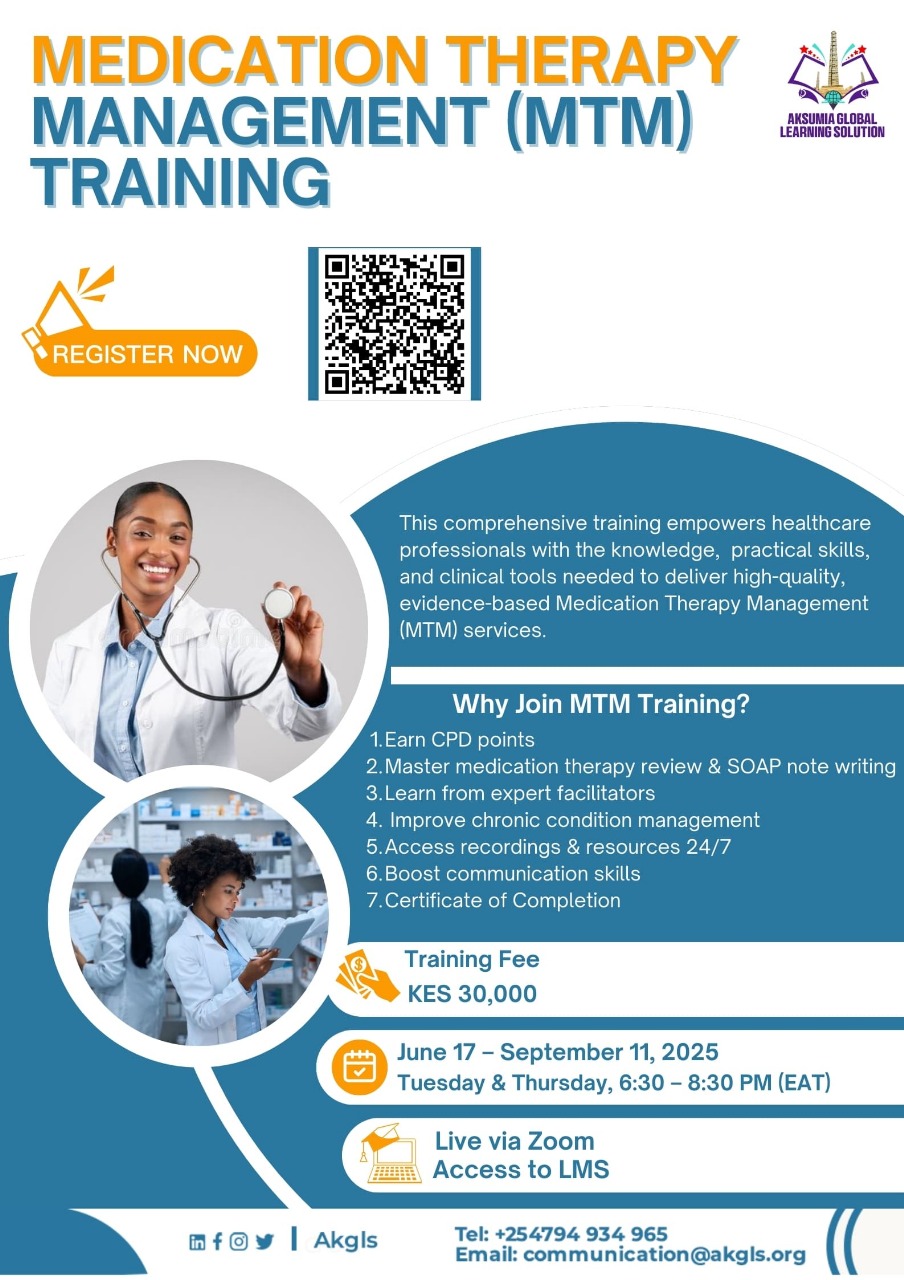Medication Therapy Management

This comprehensive MTM training equips healthcare professionals with the clinical expertise, evidence-based decision-making skills, and communication competencies necessary to deliver comprehensive Medication Therapy Management services. Through interactive virtual sessions, case-based learning, and practical assignments, participants will be empowered to optimize therapeutic outcomes and enhance patient safety across diverse healthcare settings.
Pharmacists, physicians, nurses, and other healthcare professionals involved in medication management and patient care. Basic pharmacology knowledge required.
Complete all modules with 80% pass rate on post-test. Submit capstone project. Certificate issued within 7 days via email.
Introduces participants to the principles, rationale, and goals of MTM, highlighting the pharmacist's evolving role in providing patient-centered care.
Explores the application of MTM services during care transitions and in outpatient settings to prevent medication errors and enhance continuity of care.
Focuses on patient eligibility criteria for MTM services, including Medicare Part D and other clinical indicators for identifying high-risk patients.
Equips participants with techniques for gathering, verifying, and analyzing patient-specific data for effective MTM delivery.
Provides an in-depth understanding of how to perform a comprehensive medication therapy review (MTR), the cornerstone of MTM services.
Teaches participants how to create individualized therapeutic plans that include complete Medication Lists and actionable To-Do Lists (MAP).
Explores adherence barriers and counseling techniques to support optimal medication-taking behavior in MTM patients.
Covers the pathophysiology, pharmacologic management, and MTM-related counseling points for common endocrine disorders such as diabetes and thyroid diseases.
Focuses on common cardiovascular diseases, drug therapies, and strategies for optimizing treatment and adherence in MTM sessions.
Equips pharmacists with skills to manage patients on anticoagulant therapy safely and effectively, emphasizing monitoring, adherence, interactions, and patient education.
Addresses asthma, COPD, and other respiratory diseases, emphasizing inhaler technique, medication counseling, and adherence strategies.
Covers GERD, peptic ulcers, IBD, and liver disorders, including pharmacotherapy, monitoring, and MTM-specific patient counseling techniques.
Explores common urologic conditions like BPH and urinary incontinence and the pharmacist's role in medication management and patient education.
Focuses on depression, anxiety, schizophrenia, and bipolar disorder, including monitoring parameters and strategies for compassionate patient engagement.
Reviews osteoporosis, osteoarthritis, and rheumatoid arthritis, emphasizing monitoring, pharmacologic care, and MTM-based support for mobility and safety.
Explores how pharmacists can proactively identify, prevent, and monitor medication safety issues within MTM services, including adverse drug event detection.
Enhances pharmacists' communication skills with patients and caregivers to improve health literacy and medication use.
Develops pharmacists' skills in interprofessional collaboration to ensure coordinated care and effective MTM delivery.
Interactive lectures and Q&A with subject matter experts twice weekly over 8 weeks.
Access pre-recorded videos, readings, and drug information resources via LMS platform.
Participate in mock MTM encounters, role-play counseling scenarios, and group discussions.
Develop and present a full MTM intervention plan for a complex patient case.
Weekly quizzes, case analysis, and final evaluation to track progress and mastery.